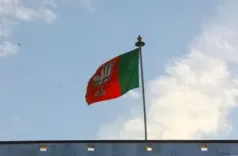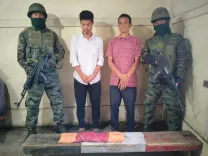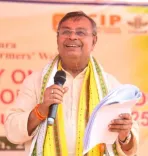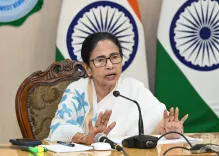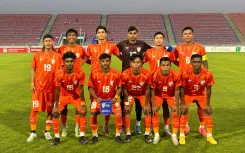How is ICMR's blood donor registry saving lives for rare disease patients in India?
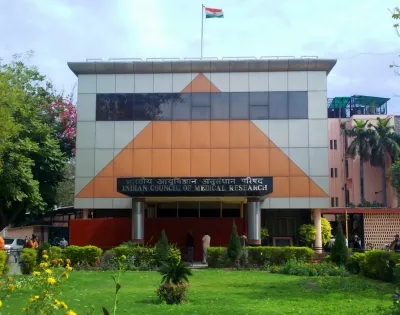
Synopsis
Key Takeaways
- ICMR's RDRI is essential for rare disease patients.
- Over 4,000 donors are registered, tested for rare blood markers.
- The registry includes donors with ultra-rare blood types.
- It enables safer transfusions by matching blood for patients missing multiple antigens.
- Integration with e-Raktakosh will streamline blood availability.
New Delhi, June 21 (NationPress) The Indian Council of Medical Research has launched a Rare Donor Registry of India (RDRI), which plays a vital role in preserving the lives of patients suffering from rare diseases, including thalassemia and haemophilia, throughout the nation.
As stated by the ICMR, the RDRI will also aid individuals with haemoglobinopathies such as sickle cell disease, various bleeding disorders, and Primary Immunodeficiency Diseases, including those with T and B cell deficiency.
“Certain individuals possess rare blood types -- affecting fewer than 1 in 1,000 people. This makes finding life-saving transfusions incredibly challenging, particularly during emergencies,” noted the ICMR.
To establish the RDRI, researchers at the ICMR-National Institute of Immunohaematology (NIIH), in collaboration with KEM Hospital (Mumbai), PGI (Chandigarh), NRS Medical College (Kolkata), and JIPMER (Puducherry), developed a comprehensive database encompassing over 4,000 meticulously screened donors, tested for upwards of 300 rare blood markers from across the nation.
They “identified more than 1,000 rare individuals negative for common antigens and 128 very rare blood group donors,” the ICMR disclosed.
The database will “assist doctors in swiftly locating rare and specially matched blood to support patients nationwide,” asserted the apex research body.
The registry aims to identify rare matches, including donors with ultra-rare blood types such as Bombay, P-null, and Rh-null.
Furthermore, the RDRI enables safer transfusions by matching blood for patients who lack multiple antigens (a common issue in thalassemia and sickle cell disease) to avert complications.
Additionally, the registry employs specialized blood screening kits, designed specifically for Indian patients. It utilizes DNA tests (Multiplex PCR) to rapidly detect rare blood types.
“This registry transforms a nearly impossible search into a life-saving solution. With ongoing support, India can guarantee that no life is lost due to a scarcity of rare blood,” the ICMR emphasized.
The ICMR-NIIH is also planning to integrate the RDRI portal with e-Raktakosh, a platform that currently provides details about blood availability, according to Dr. Manisha Madkaikar, Director of the ICMR-Centre for Research Management and Control of Haemoglobinopathies (CRHCM) in Nagpur.
This integration will not only allow patients with rare blood groups to easily locate blood banks and obtain blood but will also enable blood banks to manage their inventory and donors through a centralized system.

